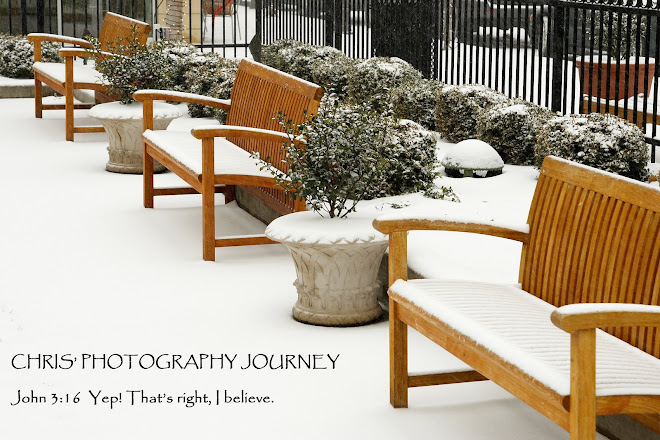I was very excited to find out there was going to be a lunar eclipse visible from my area. I have tried to see numerous comets, eclipses, and meteor showers in the past, only to have clouds and weather make visibility impossible. This year was different. The weather was almost 80 degrees and the skies were totally clear. I could not believe my good fortune.
My attempts to photograph the moon in the past had been failures because I could not figure out the exposure time. Fortunately, I found a guide on the Internet that shows approximate exposure times for a given ISO and aperature combination. This was a tremendous help. For my ISO and aperture I needed a 1/60 shutter which blew me away. I figured you needed a much longer shutter to capture the moon. The other thing I never thought about was that I needed to slow the shutter as the moon moved further into eclipse because it was returning less light. At 75% eclipse I needed to slow down to 1/30. At 50% I needed to slow down to 1/15 and so on. This was a tremendous help and helped me capture pretty consistent photographs through each phase. The chart I used is at this link:
The thing this guide neglected to mention, or that I overlooked, is that the moon moves WAY FAST! As the moon moved into full eclipse I dropped my shutter speed way down just as the chart recommended so I could get a nicely exposed shot. Below you can see what happens when you photograph the moon with a 60 second exposure. Being the brilliant photographer I am, I reviewed this shot and realized 60 seconds was a tad too long. I spent the next hour taking several shots at exposures between 5 and 15 seconds. I had been concerned about the focus all night because I had a weird angle on my tripod and could not get a very good idea on whether the autofocus was working or not (I think it did pretty well). So, when I previewed the full exclipse shots zoomed in on the camera's LCD, I figured I was doing something wrong. I could tell they were still blurry, but I thought the tripod was moving or I was not getting the focus set properly. The next day I was reading about the experience of some other photographers and discoved a sad truth. Any exposure longer that 1/2 second is not going to be sharp. That meant ALL of my full eclipse shots were ruined. =(
This was the best of the full eclipse shots in the umbral phase. The moon was going to set in my area long before the eclipse was over, so at this point I packed everything up and headed home. Overall this was a great experience. Just watching the eclipse was cool. I can understand how primitive civilizations thought something dramatic or magical was happening. I also learned a lot about what I will do different the next time, including having multiple setups for different types of shots. Now I want to get out and shoot some star trails.

